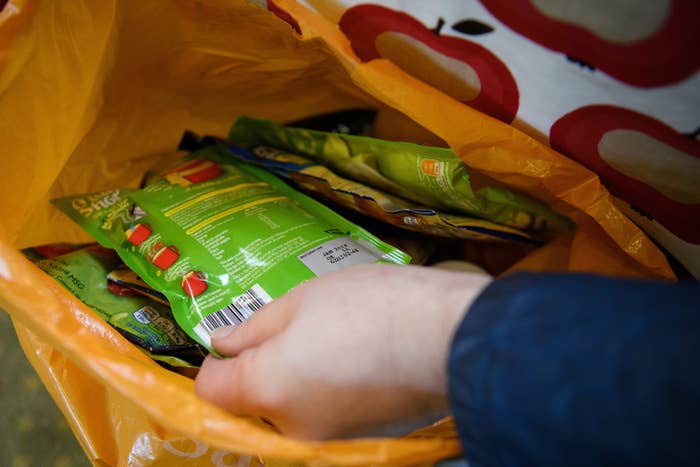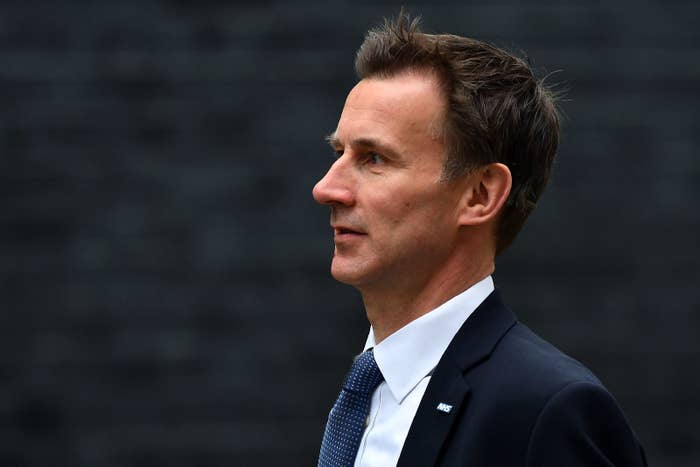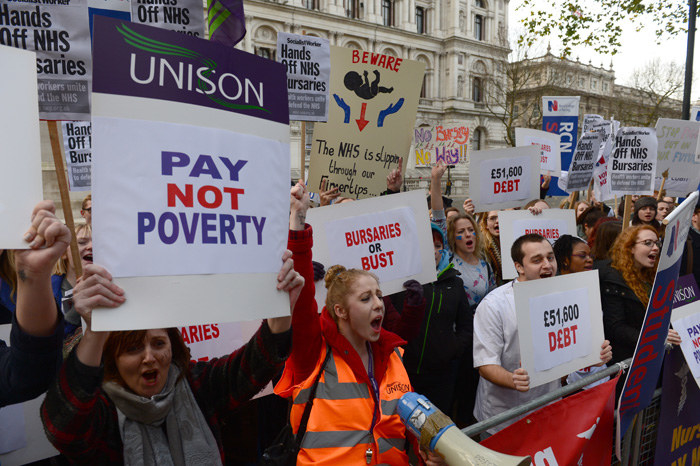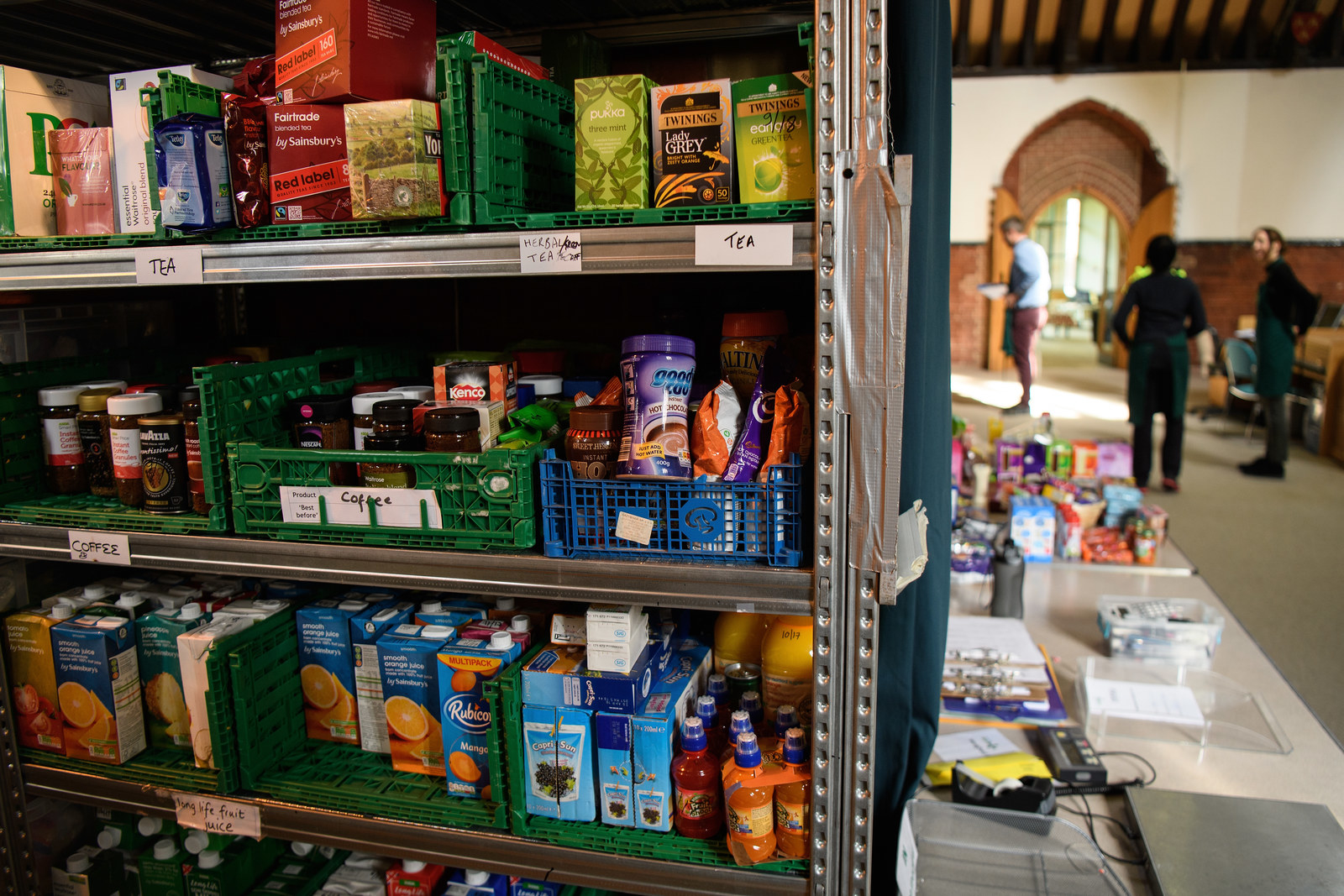
A nurse who is currently relying on a food bank to help feed her family has said Jeremy Hunt would have a "huge shock" if he traded places with her, after the health secretary dismissed claims that NHS staff had sought out emergency food services.
"Jeremy Hunt needs to spend a bit more time discussing with nurses everywhere how much we are struggling," said Michelle Murray, a single mum of four from Wigan who has been an NHS nurse for 16 years and visited a food bank for the first time this month.
Murray told BuzzFeed News she had never expected to visit a food bank and found the experience difficult and embarrassing. "I think it’s very hard to ask for help when you’re struggling," she said.
"I’m a very, very proud person. It’s something you’d never imagine when you’ve been self-sufficient all your life. It’ll be the same next month. No matter how much you’re watching your money, you’ve just not got it there."
During an interview on the BBC's Andrew Marr Show on Sunday, Hunt dodged the issue of poverty among NHS staff when he was asked to expand on prime minister Theresa May's earlier comments that there were "complex reasons" why nurses could be using food banks.
"Well, let’s look at the facts," Hunt said. "The minimum a nurse can be paid in this country is £22,000 to £27,000 in inner London. That assumes they do no night shifts or antisocial hours, which in practice, most will."
When Marr pointed out that a 1% cap in pay-rises for nurses until 2020 – coupled with a previous pay-freeze – means nurse's salaries would be down 11% when inflation is taken into account, Hunt said he did not agree with those numbers.

Murray, whose children are aged 6, 8, 13, and 19, said she had seen her monthly salary drop by £800 after switching to part-time outpatient work, because her shift-patterns as a full-time paediatric nurse left her unable to meet childcare costs.
"I’ve been on nights for three years, so a lot of my time was taken up with the night shift," she said. "I need to be at home more and I need something that works around the kids."
Murray said she had explored numerous options to make ends meet before visiting a food bank. "I’ve been on to the bank to help me to assess my finances, but I’m absolutely penny-picking every week with what I can afford or can’t afford," she said. "I’m trying to shop online to find out the cheapest products – I’d have never done that five or six years ago."
When she first qualified as a nurse, Murray said money wasn't such an issue, but a combination of her change of circumstances, a freeze in overall NHS pay, and a rise in living costs has made life very difficult for her.
"When I first started my job, we didn’t struggle. We had holidays. We just did things normal families do. Wage was never an issue," she said. "Over the last few years it’s appalling."
While Murray said she didn't expect to be able to afford luxuries like a holiday now, she was finding it hard not only to feed her children, but also to cover expenses like school trips or an internet connection that would allow them to do their homework.
"My daughter is going on a school trip to Belgium in September and the last payment is due this week, and I can’t afford to pay it," she said. "It’s only £300, but I’m struggling like mad just to pay the last instalment of £120 by the deadline next week. I can’t do it.

"It’s sad, she’s saying to me, ‘all my friends are going, I can’t miss that trip’ and it breaks your heart as a parent."
Though Murray said she had worked hard to complete her nursing degree and build her career, she now believes she may have no other option but to seek better paid work elsewhere. In an interview with The Guardian Chris Hopson, the chief executive of NHS Providers, said a "significant numbers of trusts say lower-paid staff are leaving to stack shelves in supermarkets rather than carry on with the NHS".
"It took me five years to get that career," Murray said." I love my job and I love the children. I couldn’t see myself doing anything else. I don’t want to leave the job I’m in, I enjoy it, but there’s a lot more money in other jobs and financially I’m really struggling."
She believes her financial issues are common among her colleagues. "We’re struggling with day-to-day costs and putting food in the cupboard. A lot of nurses I know are also doing agency work to boost their pay just to pay the mortgage."
Joan Laplana, a Spanish nurse living and working in Norfolk, told us he hadn't needed to visit a food bank but had recently turned to a payday loan to make ends meet.
"My car broke down and I had to pay a bill to fix it," he said. "I needed the car to go to work so the only option I had was to take out a payday loan, but that got me into a vicious circle because I don’t have the money to pay the interest, so there were months where I was struggling.
"Lots of us are just one payday away from poverty. If we have an unexpected bill like I did, often we struggle to pay it."
Laplana said Hunt's comments were shortsighted: "Hunt is out of touch. I want them to have a conversation with the frontline staff."
Daphine Aikens, who runs the Hammersmith and Fulham food bank in southwest London, told BuzzFeed News she regularly meets NHS and other public service staff.
"I've seen nurses, social workers, hospital porters, hospital administrators, and teachers in my food bank," she said. "If you're on a lower salary, particularly in cities with high rents and travel costs, then the kind of emergency that can't be budgeted or planned for can lead to someone needing a food bank.
"How many people are able to save for these kinds of emergencies – partner losing their jobs/unable to work due to illness, a broken washing machine or boiler?"

Aikens said that people from all walks of life can at some point need to visit a food bank. "The only thing that most of them have in common is that they don't want to be at a food bank, they never imagined they'd be using a food bank, and there's been some kind of unexpected crisis in their lives," she added.
Adrian Curtis, network director at the Trussell Trust, which runs most of the UK's food banks, confirmed he had received reports from the network of nurses accessing emergency food.
"One nurse, a mother of two school-aged children, was referred after her shift pattern was changed and she had to find the money in her budget to cover additional childcare costs," Curtis said. "Another nurse needed a food bank's help to put food on the table when her husband left and she suddenly needed to stretch her one income to pay nursery fees, a mortgage, the family bills."
While unemployed people are often referred to food banks via a job centre, Curtis said there is a range of over 30,000 organisations that might refer professionals such as nurses, including Citizens Advice workers, children's centres, and schools.
Labour's shadow health secretary, Jonathan Ashworth, said it was a "total disgrace" that NHS workers would find themselves in food banks, and blamed the pay freeze.
"Jeremy Hunt and Theresa May just aren’t taking welfare of Britain’s nurses seriously," Ashworth said. "At this election Labour are pledging a comprehensive plan to support NHS staff with better pay, safe staffing levels, and fully funded training."
Janet Davies, chief executive and general secretary at the Royal College of Nursing said that stories like Murray's were common and showed the impact that pay restraint had on NHS staff.
“The cost to individual nurses is not acceptable – hard working professionals should not have to struggle to put food on the table or buy their children clothes," Davies said.
She added that issues with nursing pay could contribute to a staffing crisis longterm. "The pay cap is fuelling a recruitment and retention crisis," Davies continued, "and when compounded by issues such as down banding, substitution of roles and student funding changes, it’s a perfect storm for nursing.”
